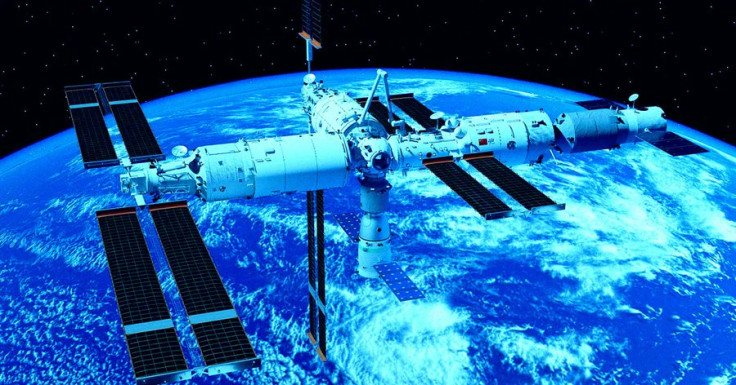Chinese Astronauts Stranded in Space After Debris Damages
Chinese astronauts' return delayed as debris impacts Shenzhou-20, prompting safety checks

Three Chinese astronauts remain in orbit after space debris allegedly struck their Shenzhou-20 spacecraft, forcing the China Manned Space Agency (CMSA) to postpone their planned return to Earth.
The crew — Chen Dong, Chen Zhongrui, and Wang Jie — had been due to land on 5 November 2025 after a six-month mission aboard the Tiangong space station, but impact damage had raised new safety fears.
'The decision to delay the return aims to ensure the astronauts' safety and mission success,' CMSA stated in an official release.
Engineers are now conducting impact analysis and risk assessments to determine whether the Shenzhou-20 capsule can still be used for re-entry or if an alternative vehicle will be required.
Unidentified Debris Raises Safety Concerns

The suspected collision highlights growing concerns about space debris in low Earth orbit. According to ESA, there are approximately 140 million pieces of space junk orbiting Earth, ranging from defunct satellites and rocket fragments to micrometeoroids.
While the exact nature of the debris that struck Shenzhou-20 remains unknown, CMSA confirmed that the damage was significant enough to delay the mission indefinitely. The agency is working with ground-based teams to evaluate the capsule's structural integrity and determine whether it can safely withstand atmospheric re-entry.
The astronauts are currently safe aboard Tiangong, which remains fully operational. 'The Shenzhou-20 crewed spacecraft is suspected to have been struck by a small piece of orbital debris, and assessment of the impact and associated risks is currently under way,' CMSA said in a statement.
Backup Crew Already Onboard
In anticipation of the scheduled crew rotation, the Shenzhou-21 mission successfully launched on 31 October and docked with Tiangong shortly after. The new crew is now aboard the station, meaning both teams, Shenzhou-20 and Shenzhou-21, are currently sharing the orbiting outpost.
This overlap provides logistical support and redundancy, allowing the stranded astronauts to remain in space while engineers determine the safest course of action.
The Shenzhou-20 crew may be forced to use the Shenzhou-21 capsule for their return if the damage proves irreparable.
International Repercussions and Next Steps
The event underscores the pressing need for international cooperation in space traffic management.
China's Tiangong station is one of only two continuously crewed platforms in orbit, making its operations pivotal to long-term research and lunar-mission preparation.
CMSA reiterated that safety remains the top priority and stated that updates will follow once the technical evaluations are concluded.
In the meantime, both crews continue scientific work, system maintenance, and joint experiments while awaiting clearance to return home.
As nations expand their orbital presence, experts warn that unregulated debris accumulation could render key regions of space hazardous.
For the Shenzhou-20 team, life continues in microgravity — safe for now, but waiting on Earth's call.
© Copyright IBTimes 2025. All rights reserved.





















